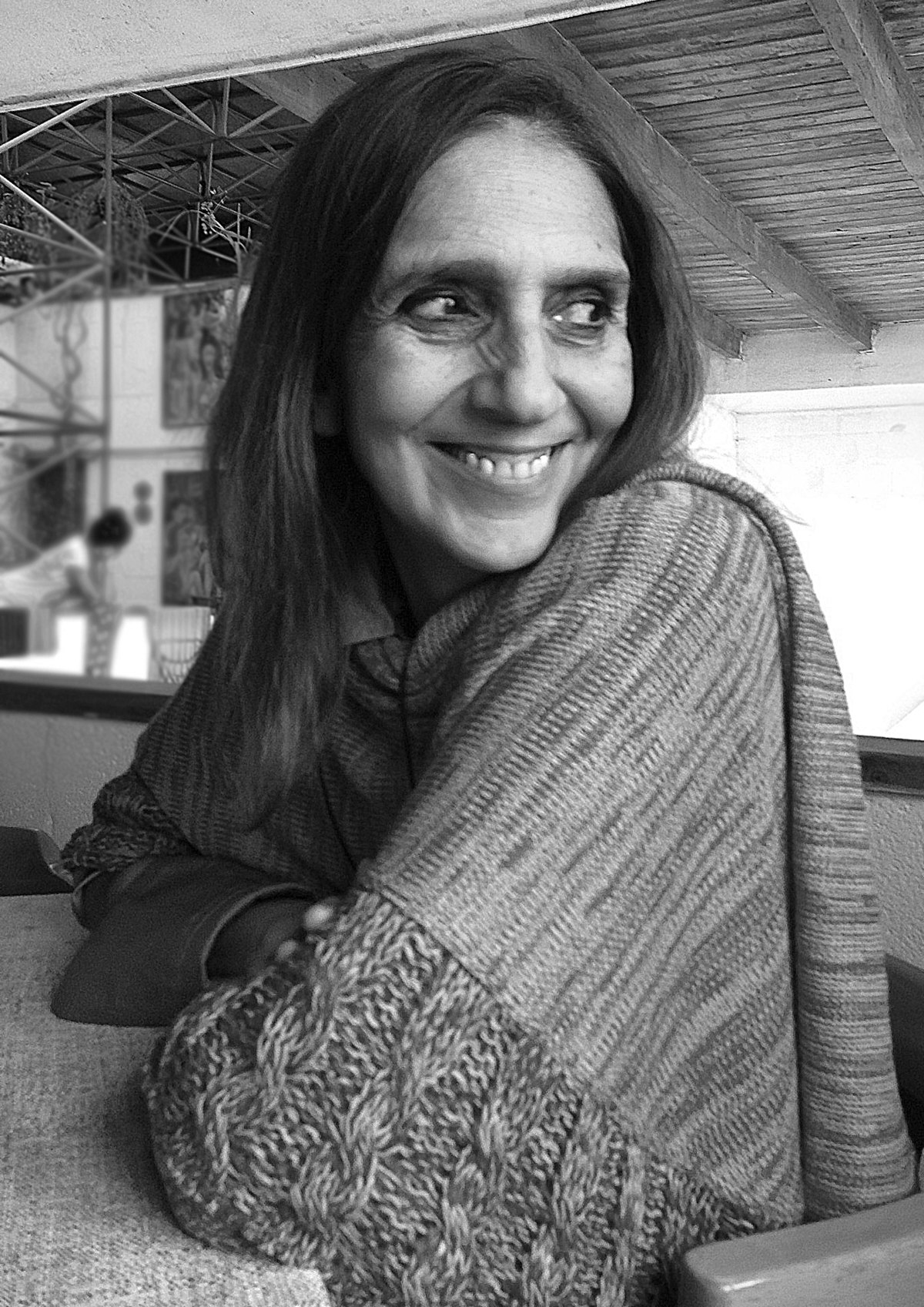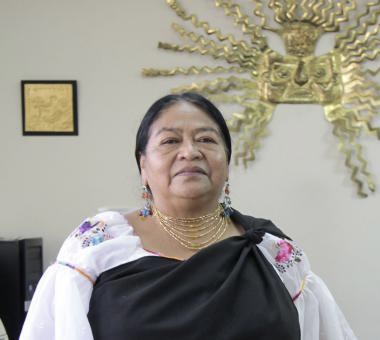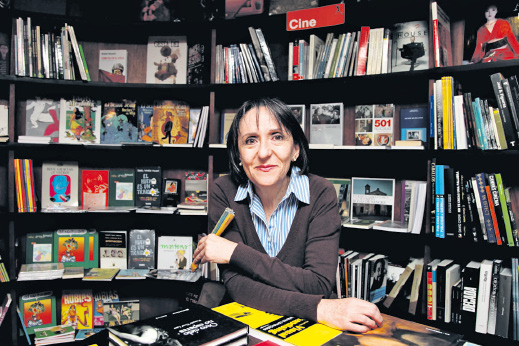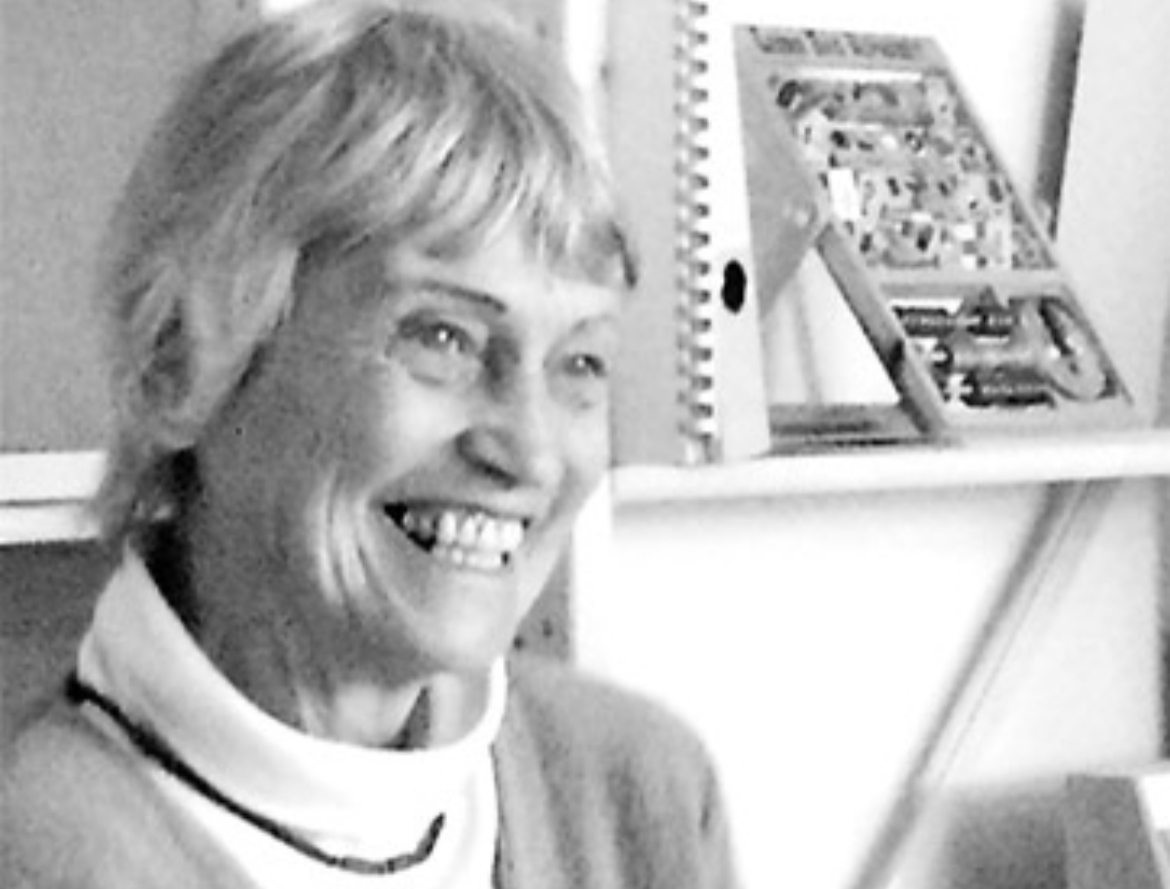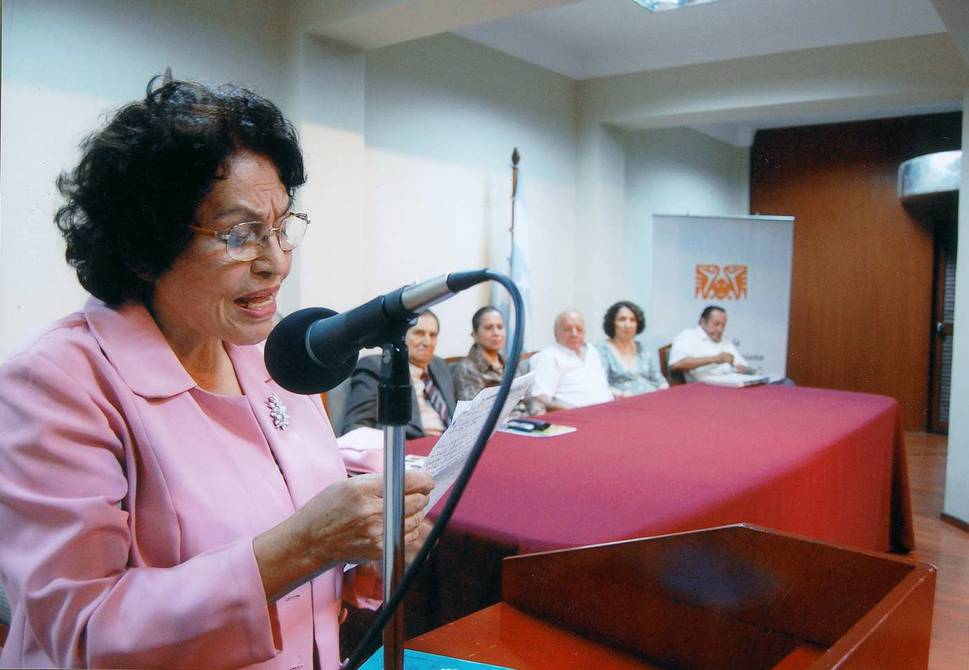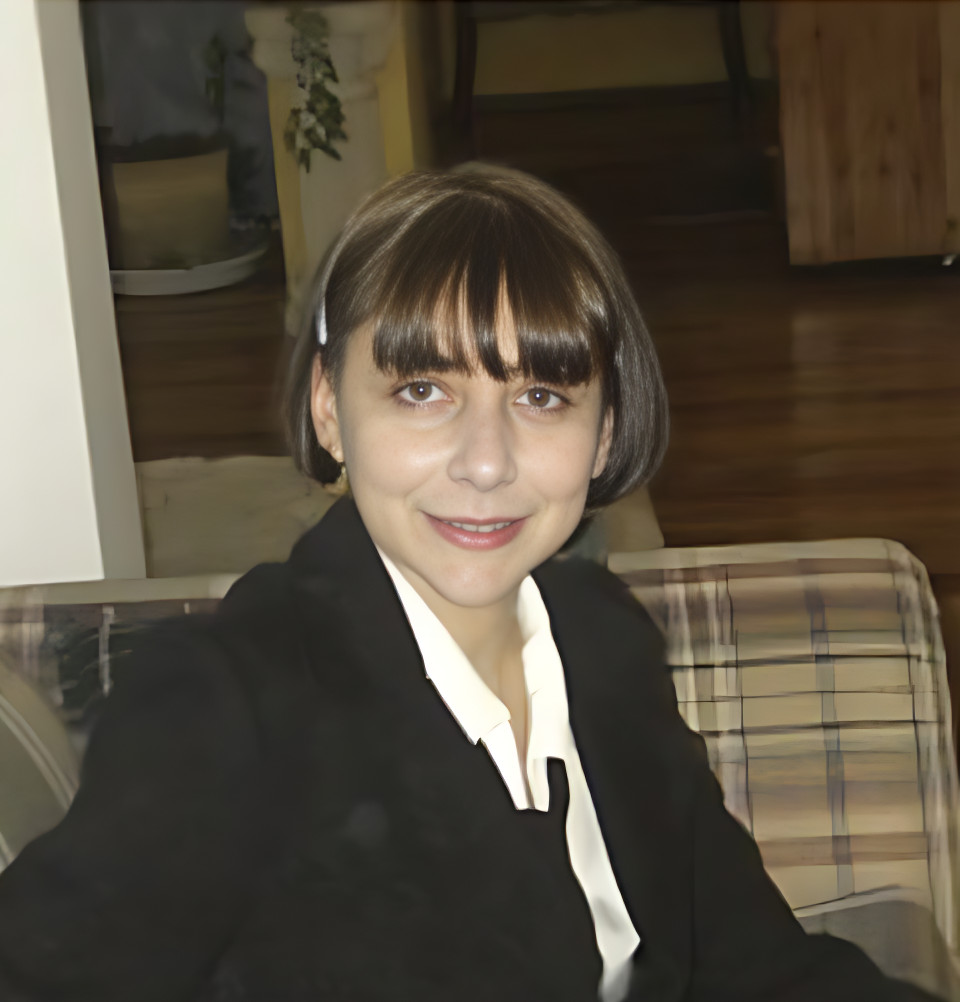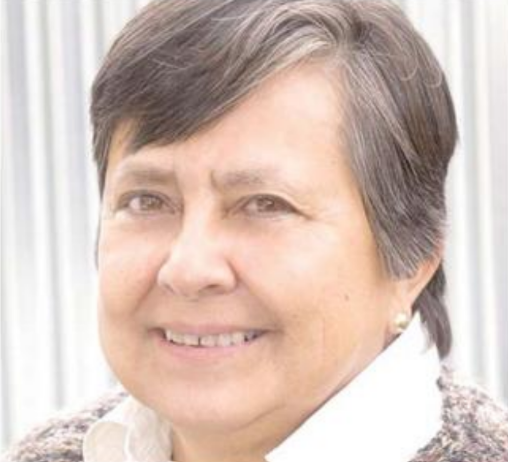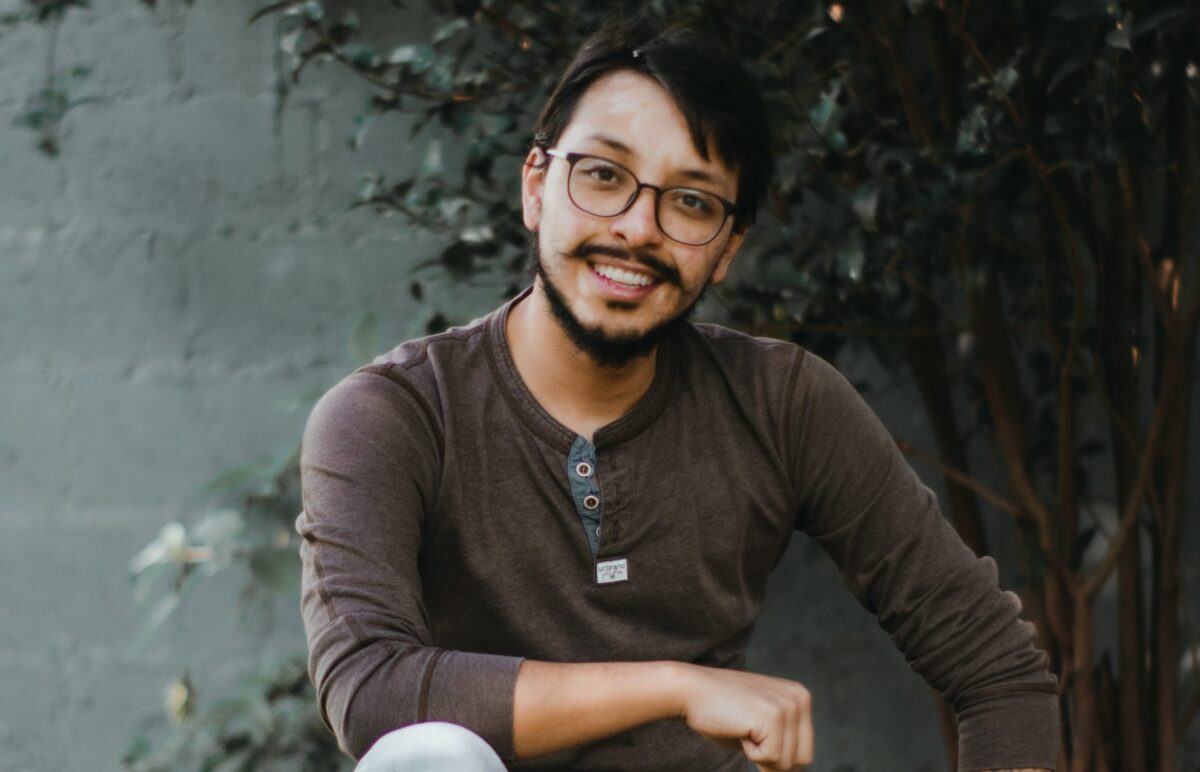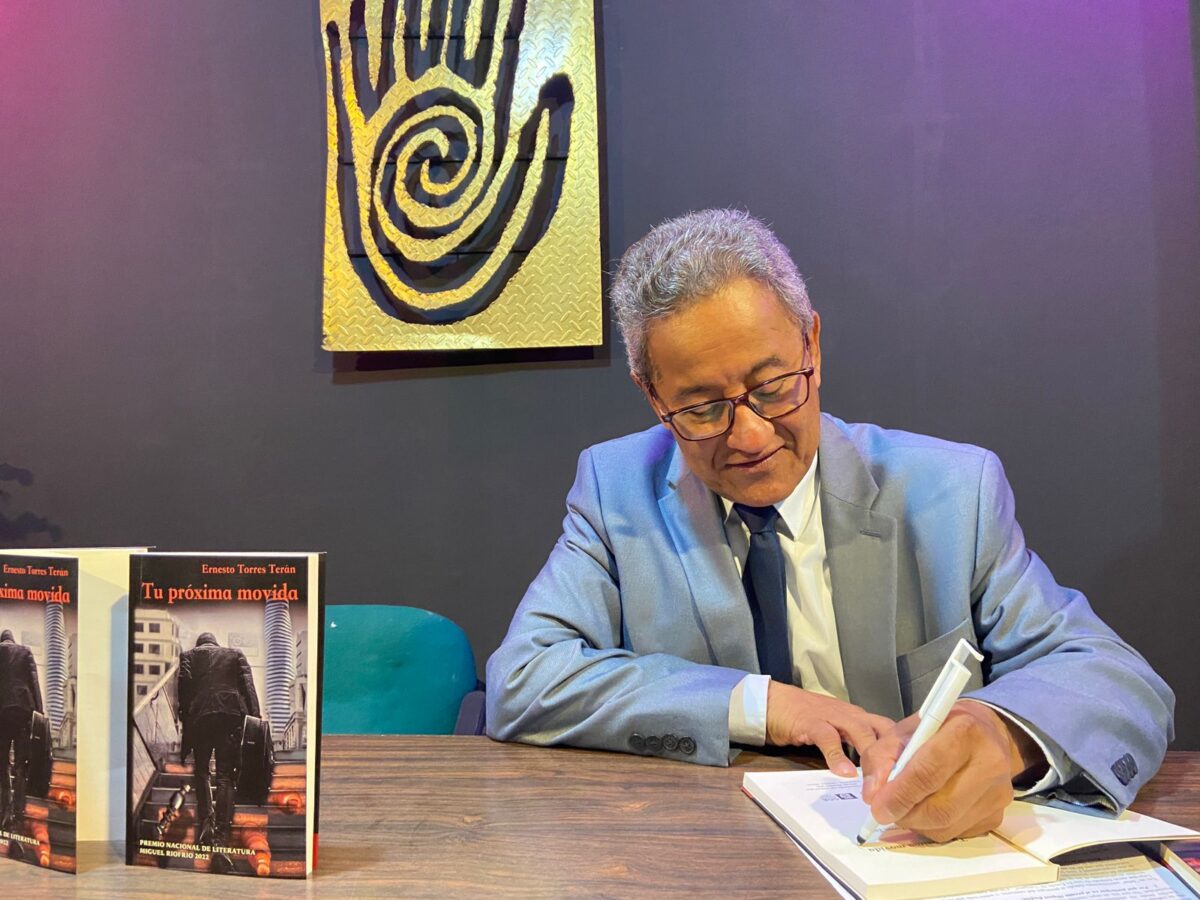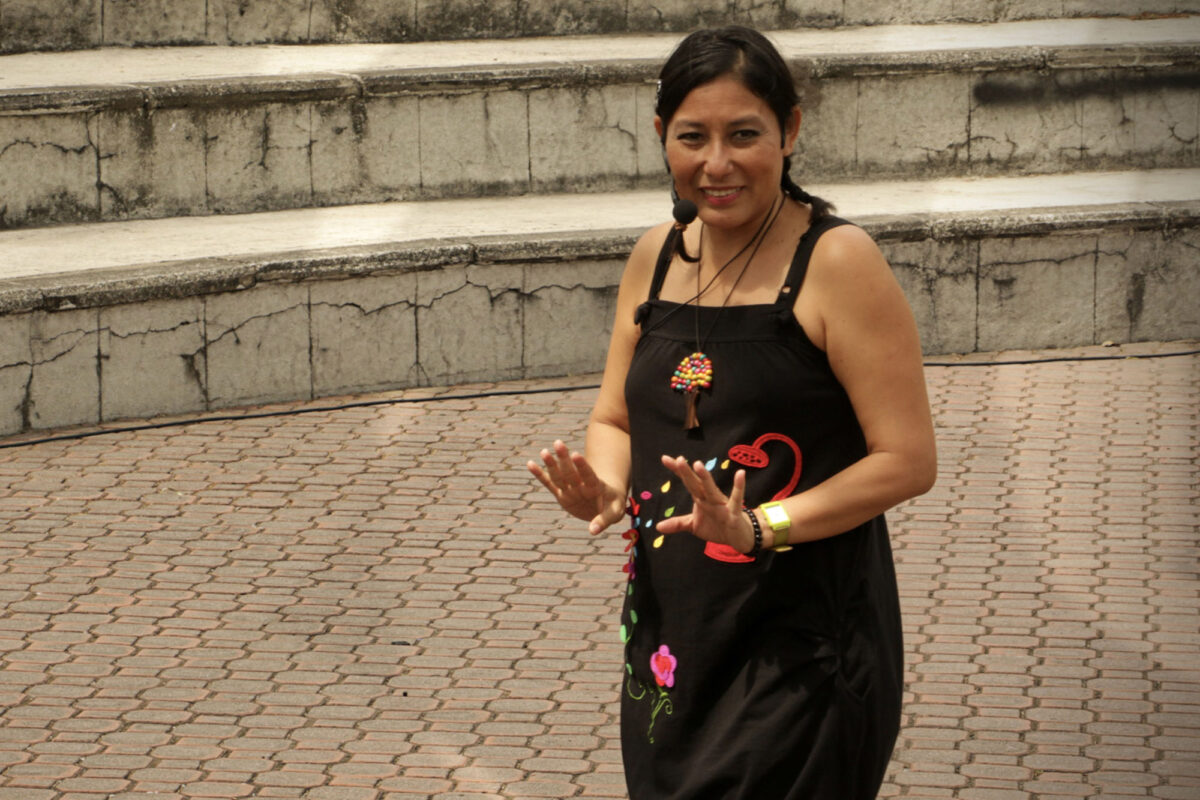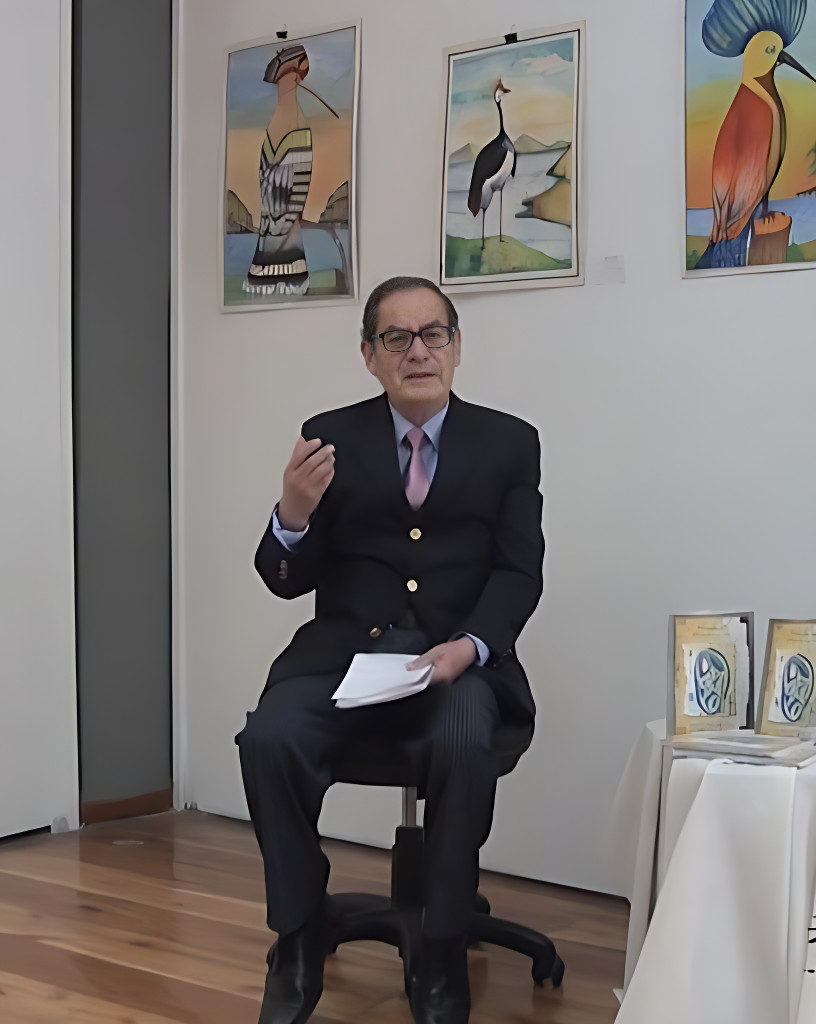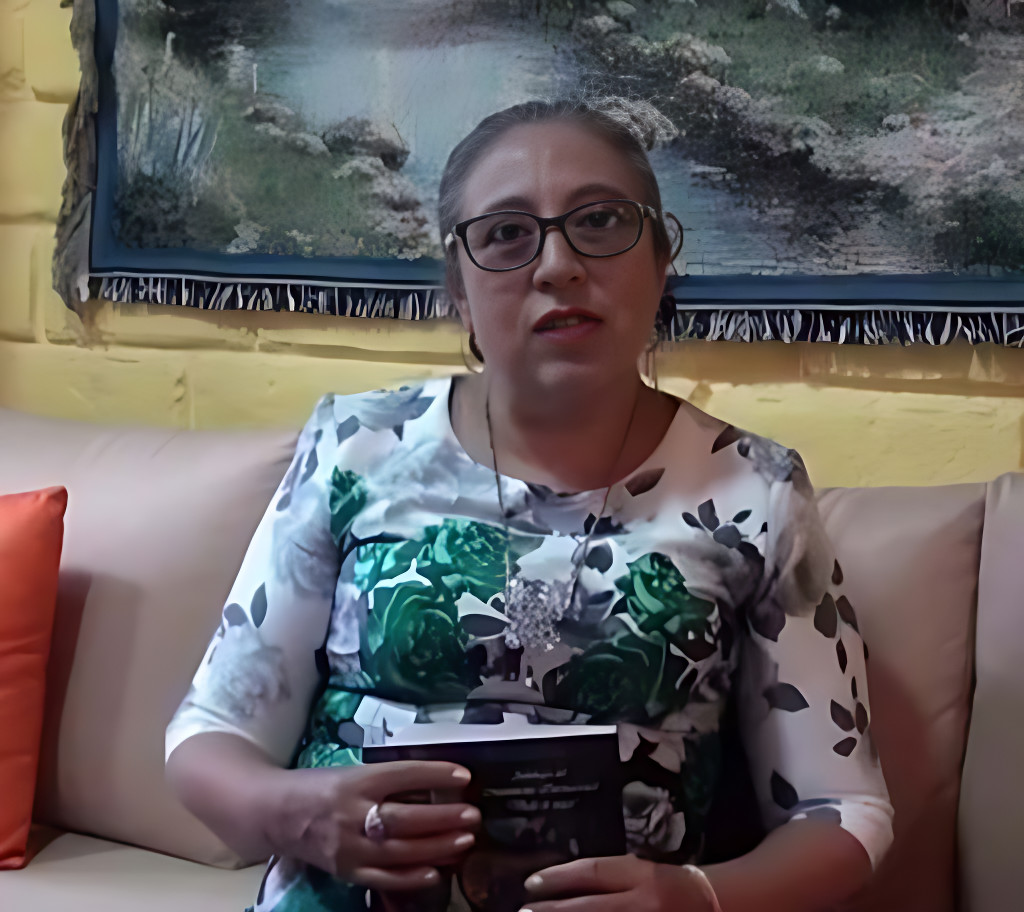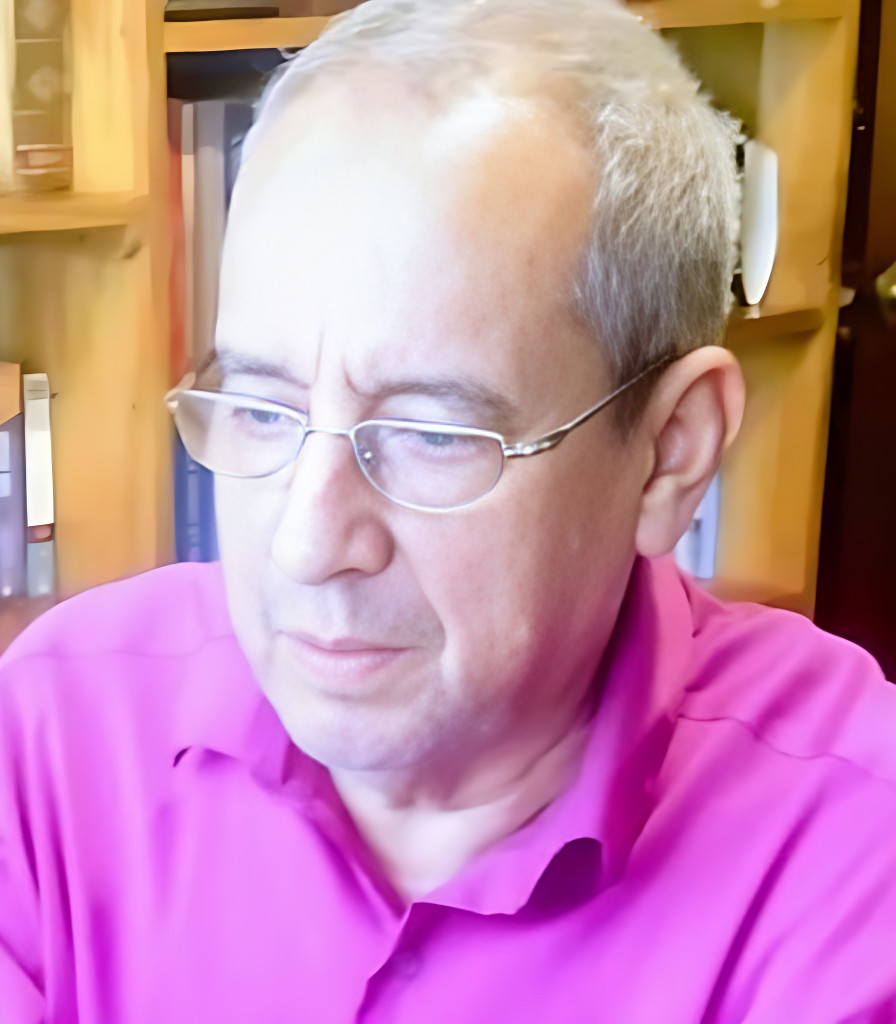Evelia Peralta (Tucumán, Argentina, 1941) is a notable Argentine-born architect who stands as a trailblazer in the world of architecture and urban planning in Ecuador. Her extensive contributions encompass academia, urban development, and architectural publications. Peralta co-authored several influential books that have become foundational references in understanding Ecuadorian architecture. Among these works, the “Architectural Guide to Quito,” a collaborative effort with Rolando Moya and Pablo Moreira, offers profound insights into the cultural and historical significance of Quito’s architectural treasures. Additionally, her book “Quito: Cultural Heritage of Humanity” and “Landscape Architecture: Quito, Concepts, and Designs” showcase her dedication to preserving Ecuador’s architectural heritage while embracing innovative design concepts. Evelia Peralta’s tireless efforts have made her a key figure in promoting Ecuadorian architecture, leaving an indelible mark on the nation’s urban landscape and architectural discourse.
Continue reading “Evelia Peralta”Category: 21st Century Writers
Estelina Quinatoa Cotacachi
Estelina Quinatoa Cotacachi (Riobamba, October 1, 1953) is a distinguished Ecuadorian historian and curator of Kichwa Otavalo heritage. Her extensive qualifications include a Bachelor’s in Applied Anthropology from the Salesian Polytechnic University, a Master’s in Conservation and Cultural Asset Management from Universidad SEK, and the title of Anthropology expert from Universidad Abierta de Loja. She has contributed significantly as an Educational Guide at the Museum and Galleries of the Central Bank of Ecuador and later as an Assistant at the Archaeological Reserve of the Central Bank of Ecuador. Internationally acclaimed, she has conducted courses and conferences across the Americas and Europe. Her prolific publications and research reflect her unwavering commitment to preserving Ecuador’s cultural heritage, culminating in her prestigious induction into the National Academy of History of Ecuador in June 2021.
Continue reading “Estelina Quinatoa Cotacachi”Mónica Varea Maldonado
Mónica Varea Maldonado (Latacunga, 1958) is an accomplished Ecuadorian author, best known for her contributions to children’s literature. Hailing from the picturesque city of Latacunga, her literary journey has touched the hearts of young readers, bringing forth enchanting tales such as “Margarita Peripecias” (2008), which earned her the prestigious Honorable Mention in the Darío Guevara Mayorga National Prize in 2008, bestowed by the Metropolitan District Municipality of Quito). Her dedication to crafting captivating narratives is further evident in works like “Estás Frita, Margarita” (2010) and “Navidad de Perro” (2013), which continue to delight and inspire young imaginations. Through her writing, Mónica Varea Maldonado has not only won awards but also hearts, making her a cherished figure in Ecuador’s literary scene.
Continue reading “Mónica Varea Maldonado”Rebeca Wild
Rebeca Wild, a notable German educator and author, was born in Berlin, Germany, in 1939 and later made Ecuador her home until her passing in 2015. In 1961, Rebeca Wild embarked on a transformative journey to Ecuador, where she would go on to make an enduring impact on the field of education. In 1977, alongside her husband Mauricio Wild, she founded the Pestalozzi Educational Center, a tribute to the Swiss pedagogue Johannes Heinrich Pestalozzi, underscoring their commitment to innovative educational methods. Her significant contributions revolved around pioneering pedagogical approaches, a theme evident in her books, including, “Raising Curious, Creative, Confident Kids: The Pestalozzi Experiment in Child-Based Education” (2000).
Continue reading “Rebeca Wild”Mariana Ochoa Loayza
Mariana Ochoa Loayza is an accomplished Ecuadorian historian and writer. Her contributions to historical research and literature have earned her widespread recognition and respect. Notably, her books “Vicente Rocafuerte. Gobernación de Guayaquil 1839 – 1843. Epistolario” (Volumes 1 and 2), “Gobernación de Guayaquil, 1839-1840: Epistolario,” and “Viajeros por El Oro” have become invaluable resources for understanding Ecuador’s history and cultural heritage. Her expertise lies in meticulously compiling and analyzing historical documents, providing profound insights into the lives of prominent figures and transformative eras. Mariana Ochoa Loayza’s dedication to her craft has garnered numerous awards and accolades, cementing her status as a revered figure in Ecuadorian academia and literature. Her enduring legacy ensures that her work continues to enlighten and inspire generations of scholars and readers alike.
Continue reading “Mariana Ochoa Loayza”Josefina Egas Montalvo
Josefina Egas Montalvo (Guayaquil, 1920 – February 2, 2014) was an Ecuadorian poet and a writer. She was known for her contributions to poetry and literature, as well as her dedication to education. Among her notable works are “Poetas Periodistas Guayaquileños” (2007), a comprehensive exploration of the biographies of Guayaquil’s literary figures, and her inclusion in “La Voz de Eros: Dos Siglos de Poesía Erótica de Mujeres Ecuatorianas” (2006), highlighting her poetry alongside other renowned female authors. Her dedication to literature and education earned her several awards and recognitions, including honors from the Casa de la Cultura Ecuatoriana and the Círculo de Periodistas del Guayas. In 2011, she received a prestigious award for her exceptional career as a teacher and poet, cementing her legacy in Ecuadorian literature.
Continue reading “Josefina Egas Montalvo”Patrizia Di Patre
Patrizia Di Patre is an accomplished Italo-Ecuadorian philologist and literary critic known for her extensive contributions to the study of medieval, Renaissance, and Baroque literature and culture in Europe and the Americas. With a doctorate in letters from the University of Florence and a doctorate in philosophy from the Pontificia Università Urbaniana, her remarkable academic journey has paved the way for a distinguished career. Notably, she has shed light on Ecuador’s early literary heritage and organized international academic events while serving as a professor at the Pontifical Catholic University of Ecuador. Her prolific research and numerous publications underscore her expertise in the field of literature and cultural studies.
Continue reading “Patrizia Di Patre”Mariana Cortázar
Mariana Cortázar Crespo (Portovelo, 1946) is an Ecuadorian writer and historian. Her work is characterized by a deep commitment to researching and narrating the history of her native province, El Oro, and other coastal regions of Ecuador. A significant part of her literary contribution lies in her valuable research, with books like “Portovelo cuenta su historia” and “El Oro de Portovelo” standing out as notable examples of her ability to unravel and share the rich history of her region. These works have earned her numerous accolades, including the prestigious David Rodas Maldonado Award from the Casa de la Cultura Ecuatoriana, núcleo El Oro, in 2014. In the same year, she was also honored with the Rosa Vivar Award by the Municipality of Portovelo. Mariana Cortázar’s dedication to preserving and promoting Ecuador’s cultural heritage is further evident in her book “Julio Jaramillo: Nuestro patrimonio,” which pays homage to the iconic Ecuadorian singer Julio Jaramillo.
Continue reading “Mariana Cortázar”Juan Suárez Proaño
Juan Suárez Proaño (Quito, 1993) is an Ecuadorian poet and editor. He studied Communication and Literature at the Pontifical Catholic University of Ecuador and has written several acclaimed poetry collections, including “Lluvia sobre los columpios” (2014) and “Las cosas negadas” (2021), which won a national poetry award in 2021. In addition to his writing, Proaño works as an editor for El Ángel Editor, a publishing house, and coordinates “Poesía en Paralelo Cero,” an international poetry event in Ecuador. His blend of literary talents has made him a significant figure in both the local and international literary community.
Continue reading “Juan Suárez Proaño”Ernesto Torres Terán
Ernesto Torres Terán (Guayaquil, 1956) is an Ecuadorian medical doctor and prolific writer. He began his literary journey with the publication of the short story collection “Del puerto secreto” (1982), followed by “Y sin embargo se mueve” (1983) and “Territorio de fantasmas” (2006). His novels include notable works like “Asedios profanos,” for which he won the Onetti-Rulfo Prize in 1996, “Mínima gloria” (2012), and “Diecisiete ballenas en una pecera” (2014), earning him various awards. Recently, he won the Miguel Riofrío Prize for his latest novel “Tu próxima movida” (2022), further adding to his acclaim as a prominent Ecuadorian writer.
Continue reading “Ernesto Torres Terán”Ángela Arboleda
Ángela Arboleda Jiménez (Guayaquil, 1969) is a journalist, publicist, dancer, oral storyteller, writer, cultural manager, and teacher. Her literary career began under the mentorship of Miguel Donoso Pareja, and she has published works such as “Cuentos y tradiciones orales del Ecuador” (2006), “Nadie sabe qué hará mañana” (2008), “Tuétano” (2021), and “Esa mujer es la muerte” (2022). A dedicated preserver of oral traditions, Arboleda has toured festivals for over 20 years, and her significant contributions to cultural management are marked by her leadership in various storytelling events. She has been recognized with nominations for Woman of the Year in Art and Culture. She holds advanced degrees in Cultural Management and teaches at the University of the Arts (UArtes) in Guayaquil.
Continue reading “Ángela Arboleda”Fredy Byron Arias Calero
Fredy Byron Arias Calero is an Ecuadorian medical doctor and poet. He is a member of the literature section of the Chimborazo chapter of the House of Ecuadorian Culture, and the International Network of Writers for the Earth (RIET), an organization advocating for a shift in attitudes to promote greater respect for the Earth and all its inhabitants. His 2021 work, “Poesías del Silencio Escrito,” further attests to his remarkable contribution to the realm of poetry.
Continue reading “Fredy Byron Arias Calero”Gladys Paredes Bonilla
Gladys Erminia Paredes Bonilla (Riobamba, 1965) is an Ecuadorian poet and educator. She is a member of the literary section of the Chimborazo chapter of the House of Ecuadorian Culture. She represented Ecuador at the 2020 “Second Virtual Book Fair Italy.” Bonilla is part of the “Vuelo de Mujer” movement, a group of 45 women using poetry to combat violence against women and promote respect. Her 2018 poetry collection “Instantes,” was published by the Chimborazo branch of the House of Ecuadorian Culture.
Continue reading “Gladys Paredes Bonilla”Fernando Macías Pinargote
Fernando Macías Pinargote (Portoviejo) is an Ecuadorian author, poet, and academic known for his contributions to the cultural and literary landscapes of his home province of Manabi. His illustrious career spans roles as a cultural promoter, a newspaper editorialist, a professor, and a director of various cultural institutions. Macías Pinargote’s literary repertoire is equally impressive, featuring diverse works from poetry collections like “El bus de las 5” (1976), “Teoría del juego” (2007), and “El signo” (2011) to journalistic chronicles like “La Primera pantalla” (2003) and his latest work in 2023, “El fútbol junto al río,” a historical account of establishing Portoviejo’s first soccer stadium. His unique narrative style and commitment to the cultural enrichment of his country distinguish Macías Pinargote as a significant figure in Ecuadorian literature, journalism, and academia.
Continue reading “Fernando Macías Pinargote”Roxana Landivar
Roxana Landívar (Guayaquil, 1997) is an Ecuadorian poet. Landívar’s poignant poems, characterized by their evocative imagery and exploration of human themes, have garnered wide acclaim. They have been published not only in her collections “Ciudades cemento” (2019) and “Fractura primaria” (2020) but also in distinguished magazines and anthologies across Ecuador, Peru, Mexico, Argentina, Brazil, and the United States. With her participation in various festivals and international book fairs, Landívar continues to enrich the Latin American literary sphere, reaching out to a broader audience, and shaping conversations around contemporary poetry.
Continue reading “Roxana Landivar”
